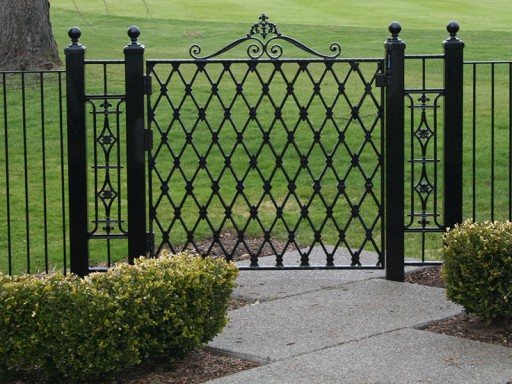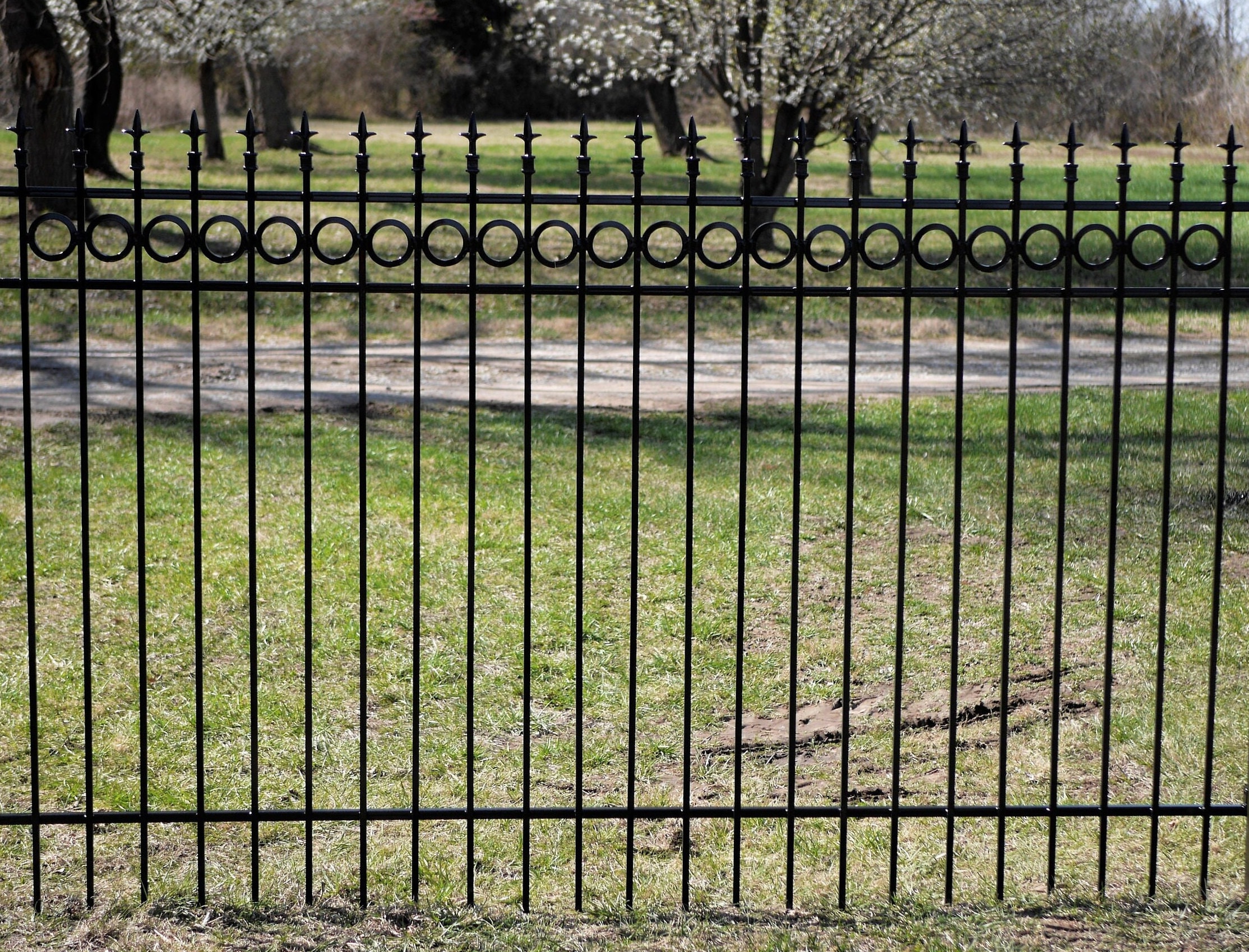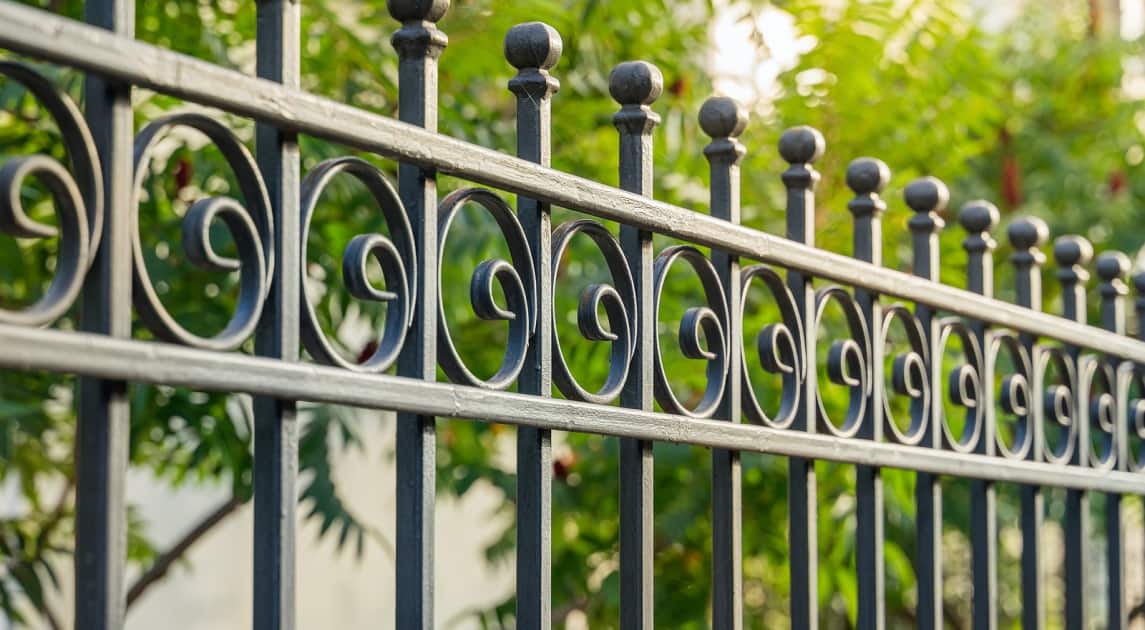When it comes to enhancing curb appeal and security for your property, decorative iron fencing is hard to beat. As an avid home improvement enthusiast, I’ve navigated the world of fencing options, and decorative iron fences have consistently stood out as a top choice. Not only do they offer unparalleled aesthetic value, but they are also durable and versatile, making them a worthy investment for any homeowner. In this comprehensive guide, we will delve deep into decorative iron fences, exploring their features, benefits, types, maintenance, costs, and much more!
What is Decorative Iron Fencing?
Decorative iron fencing is a type of fencing made primarily from wrought iron or similar materials, designed to provide security without sacrificing style. These fences often feature intricate designs, elegant finishes, and customizable options that enhance the visual appeal of homes, gardens, and commercial properties.
Key Features of Decorative Iron Fencing
- Durability: Iron fences are robust and can withstand harsh weather conditions.
- Security: They provide an added layer of security due to their sturdy nature.
- Aesthetics: Decorative options allow homeowners to choose designs that complement their property style.
- Low Maintenance: Unlike wood fences, iron fences do not require frequent painting or staining.
Types of Decorative Iron Fences
Choosing the right type of decorative iron fence requires understanding the various options available. Below, I’ve broken down some popular styles:
1. Wrought Iron Fencing
Wrought iron fencing is a timeless choice known for its beauty and strength. Each piece is crafted from solid iron, allowing for intricate designs that can be tailored to fit your style.
2. Aluminum Fencing
Aluminum is a lighter, rust-resistant alternative to wrought iron. While it may lack the same weight and solidity, modern aluminum fences can mimic the look of wrought iron and still maintain a stylish appearance.

Comparison Table: Wrought Iron vs. Aluminum Fencing
| Feature | Wrought Iron | Aluminum |
|---|---|---|
| Durability | Highly durable, can last decades | Rust-resistant, may last up to 30 years |
| Weight | Heavy and sturdy | Lightweight |
| Design Variability | Highly customizable | Less customizable than wrought iron |
| Cost | Generally more expensive | More affordable |
3. Decorative Iron Gates
Complementing your decorative iron fence with a matching gate can enhance the overall aesthetic. These gates come in various styles, from arched designs to ornate details.

The Benefits of Installing Decorative Iron Fencing
Now that we’ve explored the types, let’s discuss some compelling benefits of installing decorative iron fencing:
1. Curb Appeal
Decorative iron fences immediately elevate the appearance of your property, making it stand out in the neighborhood.

2. Enhanced Security
The solid structure of iron fencing acts as a deterrent against intruders, providing peace of mind for homeowners.
3. Low Maintenance Requirements
No need for regular painting or staining; iron fencing only requires occasional cleaning to keep it looking its best.

4. Versatility in Design
With countless styles and colors available, there’s a decorative iron fence suitable for any architectural style.
Drawbacks to Consider
While decorative iron fencing offers many advantages, it is important to be aware of the potential drawbacks:

1. Higher Initial Cost
The initial investment for wrought iron is generally higher compared to other materials like wood or vinyl.
2. Rust and Corrosion
Without proper maintenance, iron fencing can rust over time, especially in humid climates. However, regular painting can prevent this.

3. Weight
The heavy nature of wrought iron requires professional installation, which adds to the expense.
How to Choose the Right Decorative Iron Fence
With the variety of options available, it can be overwhelming to select the perfect decorative iron fence for your property. Here are some tips:

1. Determine Your Budget
Assess your financial situation and decide on a budget for your project. Remember to factor in installation costs.
2. Understand Local Regulations
Before installation, check for any zoning laws or regulations in your area. Some municipalities have specific guidelines regarding fence heights and styles.
3. Choose the Right Style
Consider the architectural style of your home. Match your fence style to enhance the overall aesthetic and cohesion of your property.
4. Consider Your Needs
Do you need a fence primarily for security, privacy, or decorative purposes? Understanding your primary needs will guide your decision.
Maintenance Tips for Decorative Iron Fencing
To ensure that your decorative iron fence stands the test of time, regular maintenance is essential. Here are some tips I’ve found helpful:
1. Regular Cleaning
Clean your fence periodically to remove dirt and debris. Use a soft brush and mild soap to avoid damage.
2. Inspect for Rust
Regularly check for signs of rust. If found, sand down the rusted area and apply a fresh coat of paint designed for metal to protect it.
3. Touch-Up Paint
Keep a supply of matching paint on hand to touch up areas as needed, ensuring your fence remains visually appealing.
Cost of Decorative Iron Fencing
Factors Influencing Cost
The total cost of decorative iron fencing can vary widely based on a few key factors:
- Material Type: Wrought iron is more expensive than aluminum.
- Height and Length: The larger the fencing area, the more costly the project.
- Design Complexity: Intricate designs require more labor and cost.
- Installation Fees: Professional installation can significantly increase the overall expense.
Average Cost Overview
Here’s a general breakdown of the costs you might expect:
| Type of Fence | Cost per Linear Foot | Installation Cost |
|---|---|---|
| Wrought Iron | $25 – $50 | $15 – $25 |
| Aluminum | $15 – $30 | $10 – $20 |
| Decorative Gates | $200 – $700 | Varies based on design |
Incorporating Decorative Iron Fencing in Your Landscape Design
Integrating decorative iron fencing into your landscape can elevate your outdoor space. Here are some creative ideas:
1. Fencing as a Trellis
Consider using a decorative iron fence as a trellis for climbing plants. The contrast between the delicate vines and sturdy iron can create a stunning visual.
2. Define Spaces
Use decorative iron fences to define different areas of your yard, such as gardens, patios, or play areas for children.
3. Highlight Architectural Features
Install a fence that complements your home’s architectural features, such as gates that match your home’s front door design.
Frequently Asked Questions (FAQs)
1. How long does decorative iron fencing last?
With proper maintenance, decorative iron fencing can last 20-50 years, depending on the material and environment.
2. Can I install decorative iron fencing myself?
While DIY installation is possible for skilled homeowners, professional installation is recommended for more complex designs to ensure longevity and stability.
3. What is the difference between wrought iron and cast iron?
Wrought iron is malleable and can be shaped into intricate designs, whereas cast iron is more brittle and used for simpler, heavier designs.
4. Is decorative iron fencing customizable?
Absolutely! Most manufacturers offer a variety of styles, heights, and finishes to suit your preferences.
5. How does decorative iron fencing compare to wood fencing?
While wood fencing is less expensive and can provide better privacy, decorative iron fencing offers superior durability and aesthetic appeal without the need for regular maintenance.
Conclusion
Decorative iron fencing is an investment that combines beauty, durability, and security, making it a perfect addition to any property. By understanding the different types, benefits, costs, and maintenance requirements, you can make an informed decision for your fencing needs. Whether you choose wrought iron or aluminum, the right decorative iron fence can dramatically enhance your home’s curb appeal and provide peace of mind for years to come.